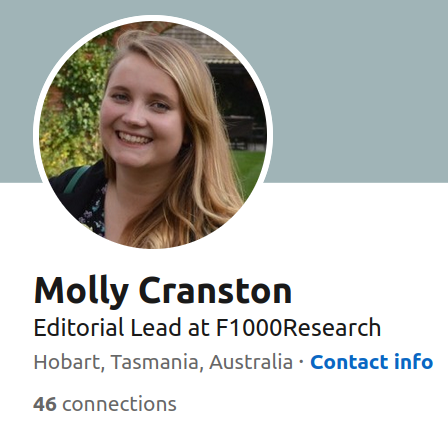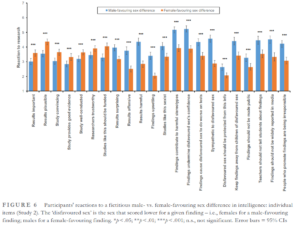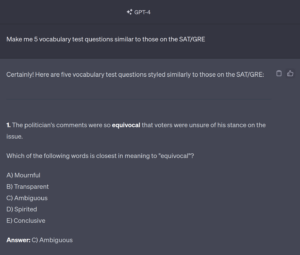As soft censorship in academia is the law of the land, we’ve been accumulating a bunch of funny worded rejections and pre-rejections. Rejections arise when you submit some work for consideration. You can either get rejected by the editor outright so called desk rejection. Or the editor can appoint some people to evaluate your work and then reject it based on their opinions, called rejection after review. The latter method gives editors near total freedom to have work rejected without incurring a negative cost to themselves. The reason is that editors can choose whichever reviewers they want, and since one can usually predict reviewer’s opinion before sending them anything, the editor can de facto almost ensure publication or rejection. If Turkheimer sends some socialist paper to your journal, and you want to publish it, you simply look over some of his prior coauthors or students, or their coauthors with a socialist bend, then have them review the work. Given the political realities of extensive left-wing bias of academia, you don’t actually have to do this, as the average random reviewer will be pretty socialist. In the case of anti-socialist papers, the default is reversed, so that rejection is the most likely outcome if you pick reviewers at random. As such, editors who want to see such work published will have to skew the reviewer selection towards people who they think are either pro-academic freedom socialists (those exist of course), or are some kind of non-socialist, whether libertarians, conservatives, or something else. You may think this is not really how science should work in some ideal world, but the realities of working with humans is that bias are inevitable, and indeed, maybe necessary. For some interesting data on peer review in action and schools of thought, see this prior post.
Preparing a paper for peer review can take a while since one has to comply with all sorts of journal rules: formatting, length, figures and so on. Naturally, then, authors don’t always want to bother with this work if they suspect they will get rejected by the editor anyway. So they can send out a feeler to the editor trying to probe if this kind of work has a fair chance in review. Sometimes the editor is blunt enough to save everybody time, and they supply a pre-rejection. This is just them saying, indeed, your suspicions were right, this kind of work is not suited for this journal for X reason. X can be whatever, it does not have to be ideological, it can just mean your paper is not within the scope of the journal in the editor’s opinion. Suppose you did a study of intelligence and sleep measures (EEG etc.). This would an interdisciplinary area between differential psychology and sleep science. Will it fit some standard sleep science journal? Maybe, maybe not. In this case it would be reasonable to send out a feeler email to the editor, but it has little to do with ideology. In some cases, it is rather more explicit. Consider this email change between John Fuerst and the editor of F1000 journal Molly Cranston (“Editorial Lead”):

From: editorial@f1000research.com <editorial@f1000research.com>
Sent: Friday, May 14, 2021 3:55 AM
To: j.g.fuerst@vikes.csuohio.edu <j.g.fuerst@vikes.csuohio.edu>
Subject: Your article submission 53307Dear John
Thank you for your interest in publishing your work with us. Unfortunately, this article is out of scope for F1000Research, which publishes work in life sciences and medicine. Your submission is therefore rejected from consideration.
We suggest that you submit your article to a journal better suited to this subject area, which will ensure you secure the right peer reviewers and reach your target audience.
I hope you find a more appropriate venue for your article.
Kind regards
MAE
The Editorial Team, F1000Research
This was the desk rejection, as they judged the work out of scope of their journal. John then argued it was in scope:
From: John Fuerst <j122177@hotmail.com>
Sent: Saturday, 15 May 2021 6:30 AM
To: F1000.Research.Editorial <editorial@F1000Research.com>; j.g.fuerst@vikes.csuohio.edu
Subject: Re: Your article submission 53307Dear editorial team,
Could you please clarify the reason for rejection? Your FAQ section clearly states:
F1000Research provides a platform to publish all forms of research in the physical and life sciences, engineering, medicine, social sciences and humanities, ranging from research articles to software tool articles, as well as many other formats including posters and lecture slides.
FAQs | Find Out More | F1000Research
Thus per your own FAQ page this research is in scope. Could you please let me know which board members made this decision and how you came to the conclusion, given your published statement of what is in scope?
Sincerely,
John Fuerst
And they said this was “a technical error”:
From: F1000.Research <research@f1000.com>
Sent: Wednesday, May 19, 2021 10:04 AM
To: John Fuerst <j122177@hotmail.com>; j.g.fuerst@vikes.csuohio.edu <j.g.fuerst@vikes.csuohio.edu>
Subject: RE: Your article submission 53307Dear John,
Thank you for your email. While your article has been rejected on F1000Research, the ‘out of scope’ email was sent due to a technical error. Please see below for the email that you should have received – my apologies for the confusion.
Upon an initial examination of your manuscript, we believe that your article does not conform with F1000Research’s article policies. The decision whether an article is suitable for publication and subsequent peer review is ultimately at F1000Research’s editorial discretion. Therefore, we will not be continuing with your article on F1000Research at this time.
Best regards,
Molly
Now, it’s “your article does not conform with F1000Research’s article policies”, unnamed policies. So what are those? John tried a third time:
From: John G Fuerst <j.g.fuerst@vikes.csuohio.edu>
Sent: Thursday, 20 May 2021 12:14 AM
To: F1000.Research <research@f1000.com>
Cc: Bryan J Pesta <b.pesta@csuohio.edu>
Subject: Re: Your article submission 53307Dear editorial team,
This is getting more interesting. Could you please clarify which F1000Research policies the manuscript did not conform to so that I might avoid the issue in the future? It is not clear based on the list.
Article Policies1. Originality
2. Publication criteria and authorship
3. Competing interests
4. Ethical Policies
4.1 Research involving humans
4.2 Research involving animals
4.3 Research involving plants5. Inappropriate image manipulation
6. Registration of trials and systematic reviews
6.1 Trial registration
6.2 Systematic reviews registration7. Standards of reporting
8. Data availability
9. Licenses
10. Permanency of content
10.1 Correction
10.2 Retraction
10.3 Editorial Note
10.4 Expression of Concern11. Allegations of misconduct
12. Appeals and complaints
13. Policy for Comments on Articles
14. The peer review model
14.1 Stopping peer reviewSincerely,
John Fuerst
And finally we get to the root of the problem:
From: F1000.Research <research@f1000.com>
Sent: Thursday, May 20, 2021 11:02 AM
To: John G Fuerst <j.g.fuerst@vikes.csuohio.edu>
Cc: Bryan J Pesta <b.pesta@csuohio.edu>
Subject: RE: Your article submission 53307Dear John,
Thanks for your email. The policies that I was referring to can be found at the top of the policies page, under the content list. Specifically:
Publication of any material in F1000Research denotes that all its authors have agreed to its content and have ensured that F1000Research’s policies have been fully adhered to. Non-compliance with these policies may mean that an article fails the pre-publication checks and cannot be published.
If an article is accepted for publication by F1000Research, F1000Research will publish your article on the F1000Research website in advance of any peer review being performed on the article. We seek to ensure that the content we produce, publish and for which we provide a platform is responsible, and has been selected and produced without bias. We respect the intellectual property rights of our contributors and seek to avoid unethical publishing behaviors such as plagiarism, defamation and cultural misappropriation.
Our Publication Terms and Conditions set out the publishing standards by which we operate. We require that all work sets out to be fair and accurate, differentiates between fact and opinion, is obtained by straightforward and ethical means, and is promptly corrected where inaccurate or misleading. The acceptability of any article shall be decided by F1000Research at its discretion. F1000Research reserves the right, at its discretion, to not proceed with publication at any time or to remove the Content following publication if there are legal or ethical concerns with the article.
Whilst we welcome opportunities for academic debate and discussion, the research we publish should be positively motivated to help all of humankind.
Best regards,
Molly
So after all these back and forths it comes down to bad motives: “the research we publish should be positively motivated to help all of humankind”. I wonder which fraction of research is motivated by such, and not more mundane alternatives such as publishing the required number of papers in order to finish a PhD, securing a postdoc, getting a hire to move out of the ghetto, boosting the H index, and so on. Technically, of course, Molly does not state exactly what is wrong with this research, so it is left to the reader to read between the lines. This is the typical form of soft censorship that academics, and indeed humans in general, use and that Scott Alexander so excellently described in his Kolmogorov Complicity And The Parable Of Lightning. Molly explains in this feminist piece that she is running their pre-publication section:
I am the Editorial Lead (Life Sciences) for F1000. Along with my co-lead, Jess Torr (Editorial Lead (HSS)), I lead the prepublications team, one part of the editorial team. The prepublications team is responsible for processing articles submitted to F1000Research and our other white label platforms prior to publication. Most of the time I’m involved in co-ordinating the team and creating new policy/guidelines for the publishing platforms alongside other members of the editorial team; although I do like to keep my hand in with being on the front line and editing occasionally! My background is in Biomedical Science, and I have an MSc in Medical Parasitology; my dissertation for this concerned soil transmitted helminths. I started out as an Assistant Editor at F1000 and have worked my way up to Editorial Lead over the last 3–4 years.
I was unable to find any research published by her.
By the way, the work that John tried to submit was this paper: More Research Needed: There is a Robust Causal vs. Confounding Problem for Intelligence-associated Polygenic Scores in Context to Admixed American Populations, so I guess we can see why Molly wasn’t too happy with it.

